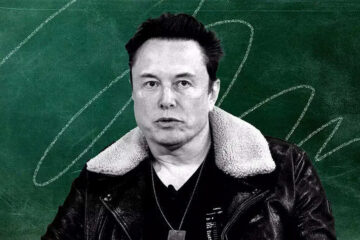Understanding the “Enshittification” Theory: Cory Doctorow’s Insights

Cory Doctorow, a Canadian-British author, has put forth a compelling theory to explain the perceived decline of tech and social platforms, which he terms the “great enshittification.” According to Doctorow, this concept encapsulates the notion that platforms operated by major tech companies are undergoing a process of decay, losing their essence and appeal over time.
The Role of Platforms in Today’s Digital Economy
In today’s digital landscape, platforms play a pivotal role, serving as intermediaries that connect various stakeholders in the market. They facilitate transactions between buyers and sellers, enable global communication, and ensure widespread access to information. Doctorow acknowledges the importance of platforms in facilitating interactions but raises concerns about their current state.
The Evolution of “Enshittified” Platforms
Doctorow’s theory suggests a multi-step evolution of platforms towards an “enshittified” state. Initially, platforms attract users with enticing offers and incentives, such as free sign-ups or discounted subscriptions. Once users are onboarded, platforms adopt strategies to lock them in, often through acquisitions and consolidation efforts that limit competition. This dominance enables platforms to extract more value from users, both monetarily and through data collection.
Examples of Platform Dominance
Doctorow cites examples such as Uber, Amazon, Facebook, and Twitter, highlighting how these platforms have become seemingly more significant than the users they serve. He questions the imbalance of power, where platforms exert control over market dynamics, overshadowing the interests of both buyers and sellers.
Challenges and Backlash
Even tech giants like Apple are not immune to Doctorow’s critique. The recent developer backlash against Apple’s App Store policies, prompted by regulatory pressure from the European Commission, exemplifies the consequences of platform dominance. While regulatory interventions aim to foster competition and protect user interests, they often face resistance from entrenched players seeking to maintain their control.
The Future of Platforms
Doctorow warns against the perpetuation of “enshittified” platforms, emphasizing the need for regulatory scrutiny and public accountability. He acknowledges the potential for tech firms to employ rebranding strategies or pivot towards new areas like AI to mitigate scrutiny. However, he remains skeptical about the sustainability of such practices, suggesting that there is a limit to how long platforms can continue down this path without facing significant repercussions.
In conclusion, Doctorow’s theory sheds light on the complex dynamics of platform economics and underscores the importance of addressing power imbalances to ensure a fair and competitive digital ecosystem.

















